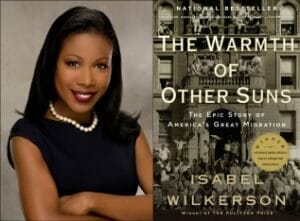Juneteenth and the Great Migration

African-Americans celebrate their freedom on June 19th. The celebration is called Juneteenth.
Juneteenth — June 19th, 1865 — was a watershed moment for enslaved Americans. It marks the end of the Civil War (in Texas) and the emancipation of all the slaves who lived there. Yes, the Emancipation Proclamation was signed two years and a half years before, but it did not free the slaves in the Rebel-held Confederate States. The Emancipation Proclamation was aimed to free slaves in the Confederacy, but the government there did not comply. So, from January 1, 1863 to June 19, 1865, people in Texas remained enslaved. It was on June 19th that Union General Granger announced the end of the war and the freedom of the slaves in Texas.
The City of Boston has a webpage to explain Juneteenth to us (I include myself in this, since I only heard of this holiday a handful of years ago.) The page also compiled links to celebrations throughout the city.
Justice delayed is justice denied.
For people who spent another two-and-a-half years enslaved, the words of the Emancipation Proclamation were meaningless until the 19th of June, 1865.
Emancipation did not lead to equality. Since 1865, the path to equality in practice — as well as equality in the eyes of the law — has been uneven. There has been social and legal progress. But, social and legal roadblocks remain.

Summer reading suggestion:
I learn history best from reading or hearing stories about the lives of people in historical times. I learn culture best by knowing people from different cultures. That’s me. But, it is not just me. If you learn this way, I suggest you read (or re-read) or listen to an audio version of The Warmth of Other Suns by Isabel Wilkerson.
The book is journalism, not memoir or fiction. It is the life story of three people who moved out of the South during the 1900s. Like any other personal story, the course of their lives are hard at times and joyous at others. Ms Wilkerson weaves their stories with history that describes the trends of the time which influenced these people. It is no accident that large populations of American Blacks moved to Chicago, Pittsburgh, Detroit, and other industrial cities in the North. There is a historical trend called The Great Migration which is explained through the lives of these people.
Every American should read this book. It is long, but it is very narrative. If you are not a book-reader by habit, listen to it on an audio-book.